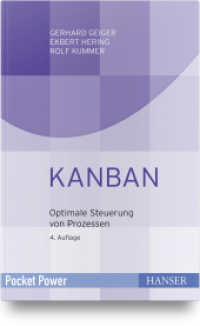- ホーム
- > 洋書
- > ドイツ書
- > Social Sciences, Jurisprudence & Economy
- > Politics, Society, Work
- > political science
Full Description
What this book illustrates is how authoritarian regimes which treat opposition threats ambiguously are likely to end up in a continuous state of instability because the feedback provided by opposition agency disappears leaving the regime susceptible to spontaneous opposition.








